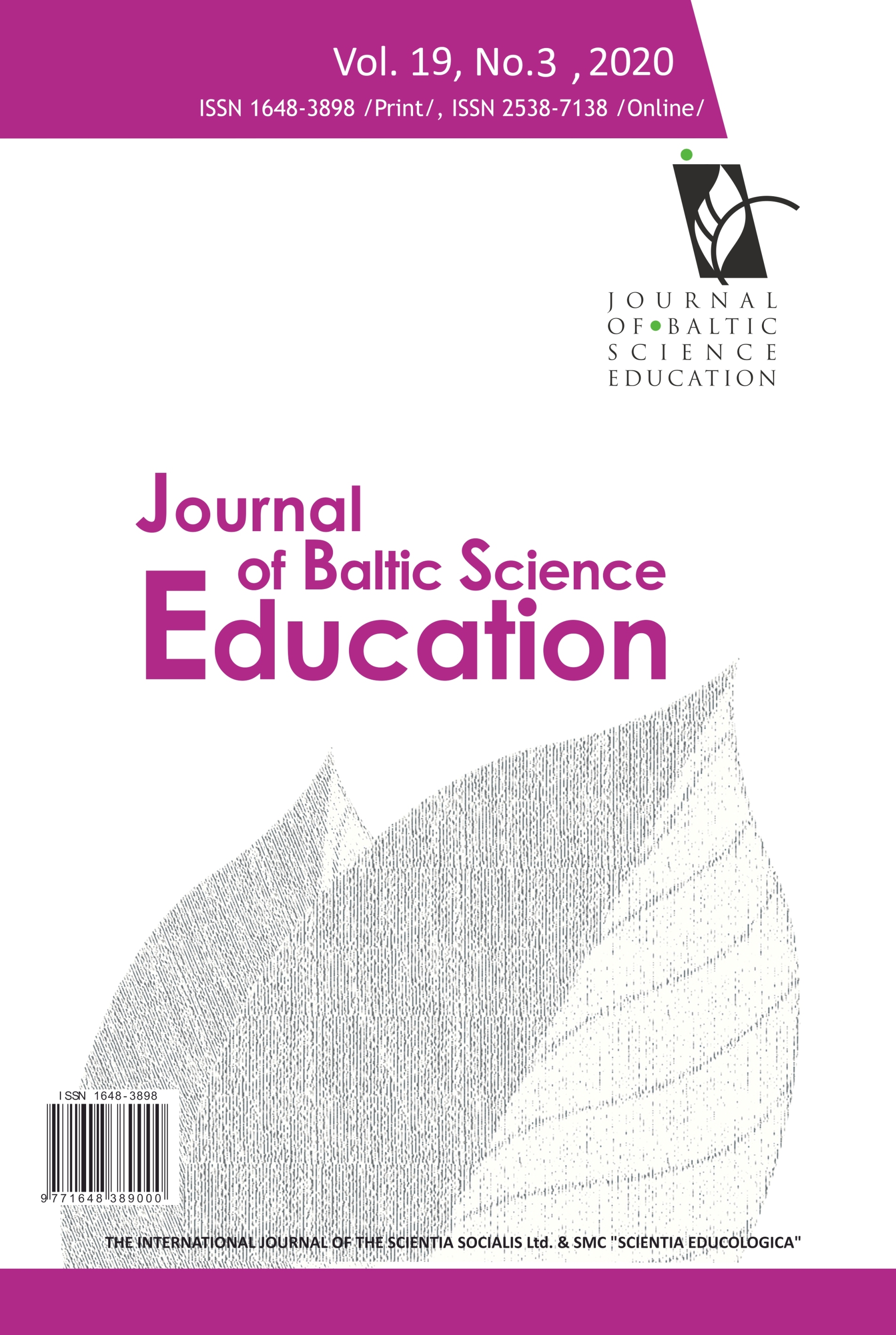HIGHER AND LOWER-ORDER THINKING SKILLS: THE CASE OF CHEMISTRY REVISITED
HIGHER AND LOWER-ORDER THINKING SKILLS: THE CASE OF CHEMISTRY REVISITED
Author(s): Georgios TsaparlisSubject(s): Education, School education
Published by: Scientia Socialis, UAB
Keywords: chemistry examinations; higher-order cognitive skills; higher-order thinking skills; student assessment; twelfth-grade chemistry;
Summary/Abstract: This work analyses students’ failure in the 2019 Nationwide Chemistry Examination in Greece, which concerns secondary education graduates, competing for admission to higher education Greek institutions. The distinction of thinking skills into higher and lower order (HOTS and LOTS) is used as a theoretical tool for this analysis. The examination included several questions that contained HOTS elements that had been unusual in previous examinations. This led to a decrease in overall student performance but better discrimination between outstanding and good students. Based on two samples of examination papers, corresponding to very similar subsets of the student population, the 2018 and 2019 examinations are compared, and the individual 2019 questions are evaluated. It was found that section B of the 2019 examination paper (which included contexts unfamiliar to the students, and for which, a large effect size between 2018 and 2019 was calculated) may have caused the large drop. An important link is established between the 2019 low performance and the HOTS and LOTS features of the questions, and the role or non-role of algorithmic calculations is examined. In addition, the critical opinions of chemistry teachers are provided, with a consensus emerging in favour of connecting chemistry with everyday life.
Journal: Journal of Baltic Science Education
- Issue Year: 19/2020
- Issue No: 3
- Page Range: 467-483
- Page Count: 17
- Language: English

